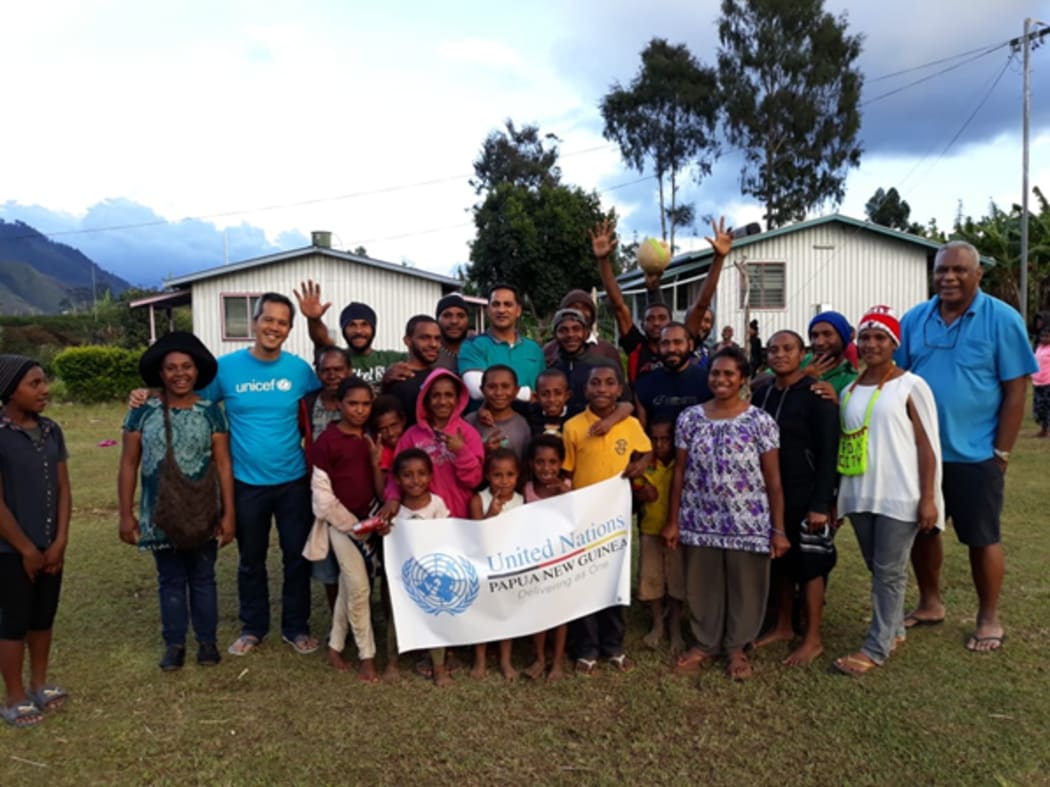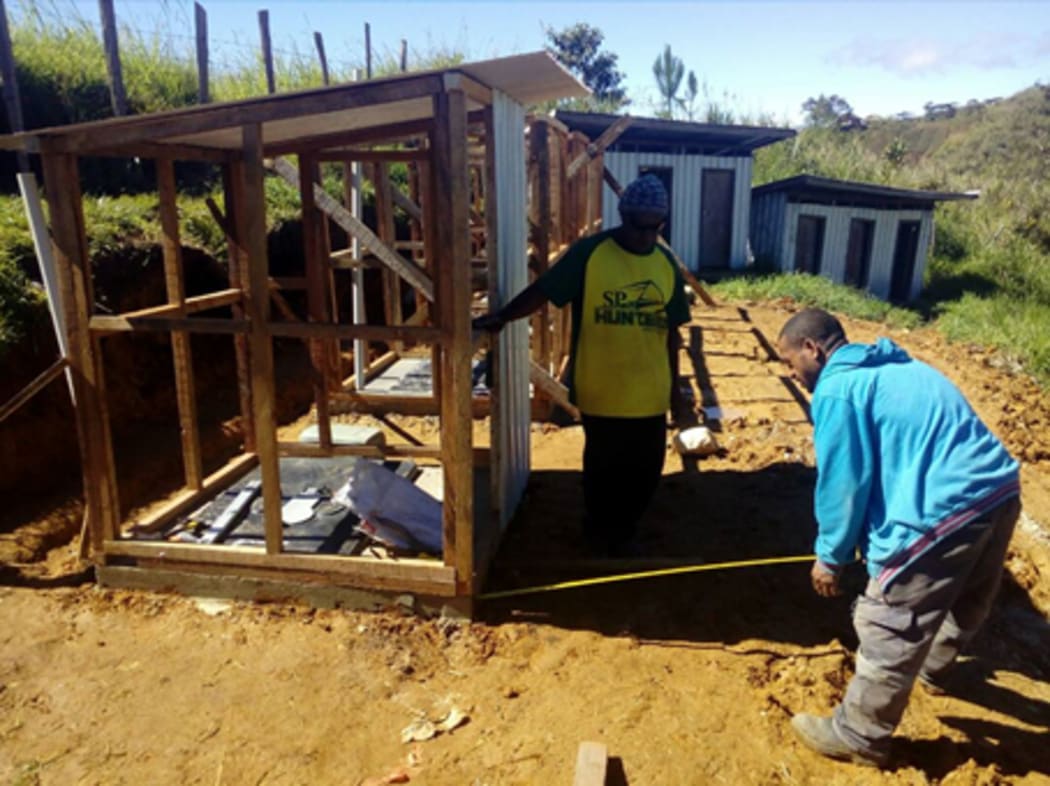United Nations humanitarian relief efforts in Papua New Guinea's earthquake-affected region are picking up pace again with a welcome return to Mendi.
UN workers were forced to pull out of the Southern Highlands provincial capital earlier this month after political unrest broke out, and the national government declared a state of emergency there.

United Nations staff were warmly welcomed back to Mendi in PNG's Southern Highlands province where they have resumed humanitarian relief activities which have been ongoing since February’s M7.5 earthquake which caused widespread damage and death in the region. Photo: UN
Violent unrest in Southern Highlands and neighbouring Hela province has proved a big obstacle to relief efforts following February's magnitude 7.5 quake which claimed around 150 lives and caused widespread devastation in these two Highlands provinces.
Last week, UN workers returned to Mendi, but they are yet to fully return to Hela. However the UNICEF Emergency Response Team Lead in the area, Ali Aulia Ramly said relief efforts in Hela had continued through partner agencies.
"Our partners are also still working there, since last couple of weeks, doing assessments, bringing people to Mendi (Southern Highlands); our water sanitation support has started a couple of weeks ago through our partners who are based in Mt Hagen and Port Moresby."
The return of the UN workers to Mendi was warmly welcomed by the local community, for whom a range of basic needs remain pressing.
"UN is committed to serve the people of Papua New Guinea and support the communities affected by earthquake in addressing their immediate needs," UN Resident Coordinator, Mr. Gianluca Rampolla said.
"Our immediate return is a testament to the commitment and dedication of our staff who are ready to work in the most difficult and challenging situations."
Operating from its base in Mendi, the UN is providing relief assistance to affected communities such as emergency shelters and households items, as well as rehabilitating facilities in schools and health centres.

UN-assisted rebuilding efforts in Papua New Guinea's Highlands region following February's 7.5 earthquake. Photo: UN
It is also supporting with establishing temporary learning space for children and empowerment spaces for women; undertaking province-wide immunisation campaigns, malnutrition screening and treatment while providing access to sexual and reproductive health, family planning services, as well as psychosocial support
Aulia Ramly said while the earthquake sequence had settled, many people still needed treatment for the trauma involved with such a significant disaster.
"From the psychosocial point of view we would like to of course continuously support the communities' children, young people and families, to build their resilience, and really make sure that everyone has some relief from the stress of the earthquake."
He said water and sanitation needs remained acute for many affected villages. Meanwhile, food security was another area of great need, particularly in remote regions whose access to help had been cut by the quake and landslides.
Through its partner agency, the World Food Programme, the UN has been seeking to provide food assistance to remote communities in Southern Highlands, Hela and Western provinces which were experiencing severe food insecurity.

